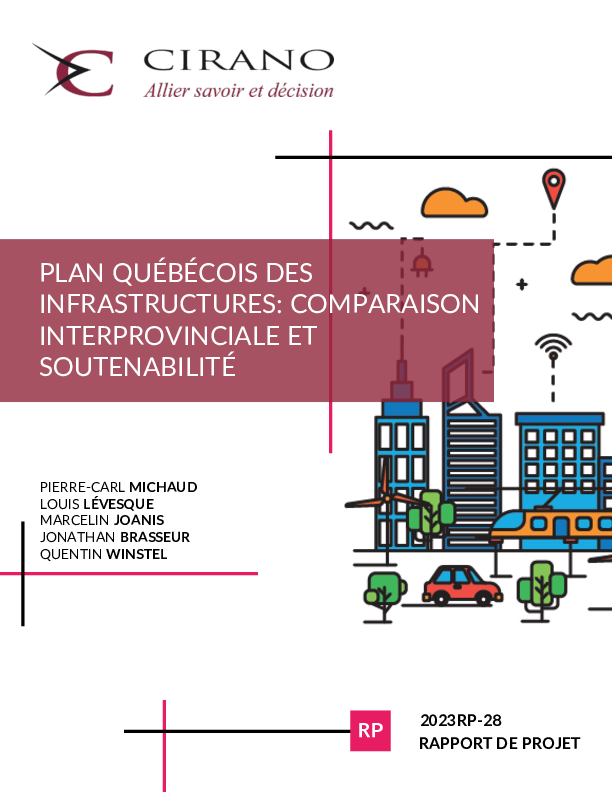Plan québécois des infrastructures : comparaison interprovinciale et soutenabilité
As a result of the Government of Quebec’s ambition to take a closer look at the appropriate level of investment in public infrastructure over the next few decades, this study looks at these issues from the perspective of financial sustainability and the impact on the state of infrastructure as measured by the asset maintenance deficit. The study also provides a pan-Canadian perspective on the Quebec Infrastructure Plan (PQI) by comparing Quebec’s infrastructure planning practices with those of Ontario, Alberta and British Columbia.The authors propose a public finance and debt model that takes infrastructure and its impacts on fiscal sustainability into account, allowing them to make projections under various scenarios.
Their analyses lead them to conclude that planned investments are unlikely to be sufficient to support the rapidly growing asset maintenance deficit. In other words, the current dynamic of the government’s infrastructure investments is not sustainable. The model projections show that the current pace of growth in infrastructure spending poses a risk to fiscal sustainability. With respect to the asset maintenance deficit, projections also point to a problem in this area, with a rapid increase in asset maintenance deficit. The simulations show that an increase in the portion of PQI investments allocated to the resorption of the asset maintenance deficit would likely result in a significant reduction in asset maintenance deficit, but without any impact on fiscal sustainability.




